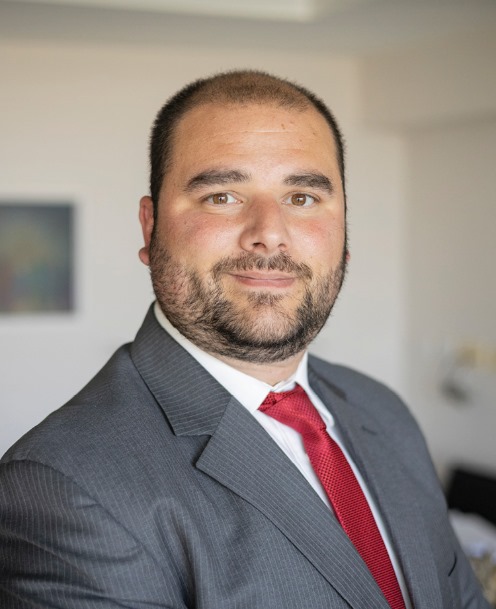As the demands of the modern world become increasingly complex, financial literacy is emerging as a crucial life skill – one that experts argue should no longer be treated as an afterthought in Malta’s education system. Economists, financial professionals and educators alike are voicing their concern that young people are entering adulthood with little to no understanding of how to manage money, navigate credit or make informed financial decisions.
A national benefit

Economist Stephanie Fabri highlighted the wider economic and social benefits that can come from embedding financial literacy into Malta’s school system. “Integrating financial education into Malta’s school system can significantly strengthen the nation’s workforce and economy,” she explained, noting that research consistently links financial literacy to reduced economic inequality and enhanced social mobility.
Dr Fabri emphasised that equipping students with essential financial skills – including budgeting, saving, investing, and responsible borrowing – can foster financial self-sufficiency and better decision-making, ultimately contributing to economic stability. She stressed that “countries that prioritise financial literacy experience stronger economic growth and greater financial resilience.”
While parents play a role in shaping children’s financial habits, Dr Fabri warned that not all parents have the knowledge to provide comprehensive guidance. This is where schools can step in to ensure that all students, regardless of background, receive consistent, structured financial education. “Structured instruction helps young people develop better money management skills, leading to higher savings rates and improved financial behaviours,” she added.
A worrying gap between education and reality

The lack of financial literacy is particularly evident by the time young adults enter the workforce, according to David Grech, Managing Director at Michael Grech Financial Investment Services Ltd. “By the time young adults leave university nowadays, their level of financial literacy is practically zero,” he remarked.
Mr Grech believes the issue stems from a narrow focus on academic subjects, leaving financial literacy to fall through the cracks. While non-formal education, such as Scouting or Guides, can teach valuable life skills, these opportunities are not universally available. “As a Scout leader, I learned more about budgeting and saving from Scouts than I did at school,” he noted, illustrating how life skills programmes can help bridge the gap.
This lack of early financial education often means young adults learn the hard way. Mr Grech pointed out that, with young people staying in education longer and entering the workforce later, they frequently encounter financial realities – such as budgeting for rent or managing their first paycheque – without the necessary skills. “This creates various issues,” he said, including young people living beyond their means or failing to understand tax deductions and credit obligations.
Real-world consequences
The consequences of this knowledge gap can be severe. “Nowadays, young people are entering the work environment somewhat later than previous generations,” Mr Grech explained. With little exposure to managing money, many struggle to handle credit cards responsibly or understand basic concepts like income tax, social security, and VAT registration. “We see clients on above-average wages living beyond their means because they don’t realise how much is deducted from their gross income,” he revealed.
When it comes to investing, the risks are even greater. Online investment platforms give easy access to complex financial products, often without any professional guidance. “They start off conservatively, then add more risk as they get confident – usually ending up in really risky investments without realising the risks,” Mr Grech cautioned.
Teaching financial literacy: Start young, make it practical
Experts are unanimous in their call to start financial education early. Luca Caruana, a Money Coach, stressed the importance of practical, hands-on learning from a young age. “Financial education should start as early as possible, ideally in primary schools,” he said. He warned against traditional, lecture-style lessons, arguing that gamification and interactive learning are far more effective for young learners.

Mr Caruana’s approach focuses on three core pillars:
- Money & Mental Wellbeing – Exploring the emotional side of money and understanding personal financial habits.
- Money Management – Teaching budgeting, distinguishing between wants and needs, and understanding debt.
- Saving & Investing – Introducing the power of compound interest and encouraging long-term thinking.
“Financial wellbeing education should be a core subject, but not in the traditional, exam-based way,” he insisted. Instead, Mr Caruana advocates for practical simulations, guest speakers, and personalised financial plans that align with students’ individual goals and values.
A developmental approach
For Mr Grech, a phased approach tailored to different age groups would work best. He proposed introducing financial concepts gradually, starting with playful lessons on the concept of money for 4 to 6-year-olds, and progressing to budgeting and saving exercises by ages 9 to 11. Older students could tackle more advanced topics, such as financial planning, taxation, credit, and investments.
“Financial education is a major life skill that any individual will be making use of throughout their life,” Mr Grech emphasised. By introducing it progressively, students can build on solid foundations year after year.
The view from the classroom
From the perspective of both an educator and a finance professional, Nicky Camilleri, CEO of Wellbee’s, believes that schools can effectively weave financial literacy into existing curricula – but only if teachers themselves are equipped to teach it. “Teachers need to be trained to be able to teach financial literacy,” he noted, adding that some schools in Malta already address the subject through programmes in Home Economics and Business Studies.

Mr Camilleri, who previously chaired San Anton School, described how financial literacy was incorporated into the school’s Programme for Personal Enrichment, covering topics such as entrepreneurship and consumer education. However, he does not believe financial literacy needs to become a standalone subject. “A module or two during the senior school years is good enough to get the basics right,” he said, provided all students, regardless of their study focus, have the chance to gain essential financial skills.
Moving forward
While the experts agree on the importance of financial literacy, they also stress that schools alone cannot bear the full responsibility. A collaborative approach, involving families, non-formal education providers, and industry professionals, will help ensure students leave school financially capable.
Dr Fabri captured the long-term benefits succinctly: “By embedding financial literacy in Malta’s education system, students can develop essential financial skills, make informed economic decisions, and contribute to a stable, prosperous economy.”
If Malta wants to prepare its young people for the financial realities of adult life, integrating meaningful financial education into schools is no longer optional – it is essential.
Employers take umbrage at video promoting public sector’s flexible work arrangements
The video outlines a range of flexibility options available to public sector employees
Malta’s inflation eases to 2.5% in January as food prices remain main driver
While overall inflation continued to moderate at the start of the year, price pressures remain uneven across categories
Final call for food and beverage manufacturers to exhibit at SIAL Paris
SIAL Paris is one of the world’s leading international food and beverage exhibitions






